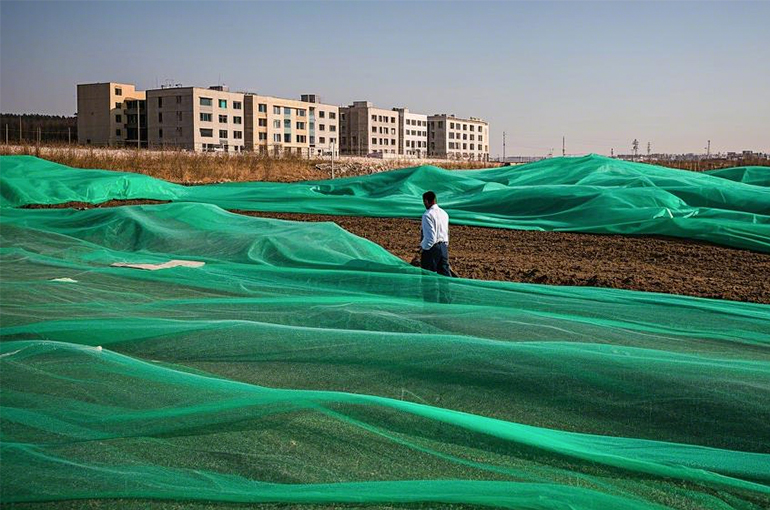 Eight Cities in China’s Guangdong to Buy Back USD2.1 Billion of Unused Land
Eight Cities in China’s Guangdong to Buy Back USD2.1 Billion of Unused Land(Yicai) Feb. 12 -- Eight cities in Guangdong, the Chinese province with the biggest economy, plan to purchase around CNY15.9 billion (USD2.1 billion) of undeveloped land from real estate developers and local government financing vehicles to help reduce these firms' debts and to spur the sluggish real estate market.
The eight cities started to repurchase the land after the Chinese New Year break, which ended on Feb. 4, using funds from local government special-purpose bonds, according to announcements by the local governments. In total, they aim to buy back 44 plots worth CNY15.9 billion.
Zhuhai has the biggest buyback plan, planning to spend more than CNY6.6 billion (USD903 million) on 14 land parcels. Huizhou, Zhongshan and Maoming each have repurchase budgets of over CNY1 billion (USD137 million), while Guangzhou, the provincial capital, has allocated CNY920 million (USD126 million) for the initiative. The remaining three cities have much smaller acquisition scales.
The buyback prices offered by local governments tend to be lower than the previous sales prices, Yicai noticed. For instance, the combined price of two residential plots in Zhuhai’s coastal business district is set at CNY1.8 billion (USD246 million), a 14 percent drop from the CNY2.1 billion (USD287 billion) that they sold for in 2023. Most of the repurchased land has been designated for uses ranging from residential, business and office to tourism.
A number of cities are actively buying back land in order to alleviate the financial pressure on developers and help them to deliver projects under construction on time, Li Yujia, chief researcher of the Guangdong Housing Policy Research Center, told Yicai. Reducing land inventory can also help curb oversupply in the property market and stabilize housing prices.
Most of the plots that are being repurchased are owned by state-owned developers and LGFVs because their asset-liability structures are clearer compared to private developers, Li said. A lot of the unused land held by private developers is mortgaged or entangled in complex debt relationships or even embroiled in legal disputes.
Policy Support
In June last year, the Ministry of Finance, National Development and Reform Commission, and Ministry of Natural Resources said that they will support local governments in using special-purpose bond funds to revitalize idle land, and the implementation guidelines were released in November.
The land repurchased by local governments should not appear in land auction markets within the same year, the guidelines said. If there is strong demand, the resale scale must be strictly controlled and not more than 50 percent of the area repurchased should return to the market.
Yueyang in central Hunan province, Kaifeng in central Henan province, Jinhua in eastern Zhejiang province and Ji'an in eastern Jiangxi province had announced their own land repurchase plans, before the eight cities in Guangdong province.
It is estimated that around CNY1 trillion (USD136.8 billion) of special-purpose bond funds will be used for land buybacks this year, which could result in the repurchase of between 100 and 200 million square meters of land nationwide, according to a research report previously published by Sealand Securities.
Editors: Tang Shihua, Kim Taylor